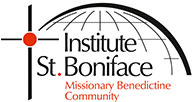
Guatemala
38 members
South of Mexico, at the geographical centre of the American continents, lies Guatemala. It is a land of contrasts: rainforests in the lowlands of the northeast, volcanoes in the central highlands, and flat, fertile coastal strips in the southwest – but a land of contrasts as well between rich and poor, between ever-growing violence and the people's longing for peace.
With approximately 15 million inhabitants, Guatemala is the most densely populated state in Central America. The majority of the inhabitants are Mayan, the rest of European or Asian descent. Guatemala's official language is Spanish, but the population speaks 21 different Mayan languages.
This "land of eternal spring" has always attracted many tourists who are fascinated by the beauty of Guatemala's nature as well as by the kindness of its inhabitants and their religious and cultural customs.


Beyond the visitors' fleeting glances, however, violence and crime, drug and human (especially child) trafficking have been persistent for years, as well as the difficult economic situation of the families, many of which have sought a way out of their misery by emigrating abroad or migrating within Guatemala.
Guatemala, to this day, is suffering from extreme social disparity. The gulf between wealthy, privileged upper classes and the growing number of those fighting for survival is widening day by day, and the struggle of the church, and many people of good will, for social justice often seems futile.
In 1965, three women of our community left for Guatemala for the first time. Today, there are 41 native women and two Germans who live and work in six groups in different places in the country, and in very different conditions. The common focus of all groups and projects, however, is fighting against injustice and poverty, and committing themselves to particularly disadvantaged groups of people in the country:
- to (young) women, especially from the indigenous population, emigrating from their impoverished villages to Guatemala City in order to find work
- to young people from rural regions with few educational opportunities
- to the many people in situations of illness and great need
The members of our groups also play an active part in the pastoral services of their respective parishes, e.g. in welfare work, pastoral care for young people and families, in evangelisation and catechesis, by accompanying women's initiatives and small grassroot communities.
It is also important for us to have good neighbourly relations with the local residents of the villages we live in, and, if necessary, to support those who cannot help themselves by their own efforts.

